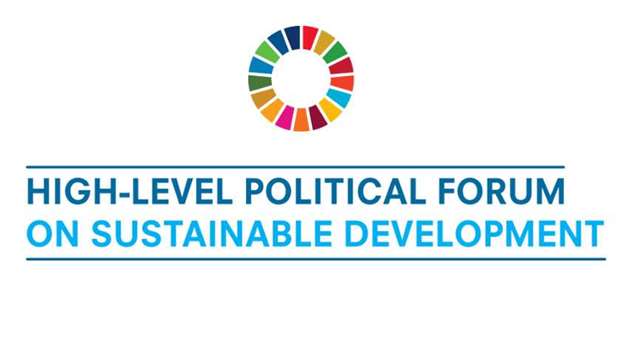Qatar will participate in the high-level political forum on sustainable development 2018, which will be held at the UN headquarters in New York from July 15 to 19, under the theme "Transformation Towards Sustainable and Resilient Societies".
During the forum, the delegation of Qatar, under the chairmanship of HE the Minister of Development Planning and Statistics Dr Saleh Mohammed Salem al-Nabit will present Qatar's second voluntary national review for 2018, which focuses on the achievements of the State in the field of development and highlights the 17 Sustainable Development 2030 Goals.
The review, prepared by the Ministry of Development Planning and Statistics in co-operation with a number of ministries and government departments, includes the most important achievements of the State in the field of sustainable development and its efforts within the framework of its national vision 2030. The review confirms that all Qataris and residents of Qatar have access to safe drinking water, as well as sanitation and hygiene services, increasing efficiency use of water and its sustainability, besides expanding the construction of wastewater treatment plants.
It is noteworthy that the State provides electricity services to all its inhabitants, while striving to enhance the thermal efficiency in energy production by checking the operational efficiency of all producers through the implementation of large awareness campaigns on the importance of energy conservation and increasing the contribution of renewable energy to the total needs of the State.
The review indicates that Qatar has achieved advanced results in the sustainable urban development sector and has implemented many infrastructure projects in safe transportation, roads, energy, water, sports facilities and housing with healthcare and social protection, and protecting society from disaster and other hazards.
The review emphasises that the State has worked to ensure sustainable patterns of consumption and production by encouraging the efficient use of natural resources and green buildings, the use of treated water in central refrigeration facilities and the reduction of solid waste production and recycling, and has sought to protect, restore and promote sustainable use of their terrestrial ecosystems combating desertification and halting land degradation and loss of biodiversity.
In this context, the National Review indicates that the total protected area is about 30% of the total area of the State, while noting that the State has taken urgent action to stop the illegal fishing and trafficking of protected species.
It also indicates that the goals and objectives of the sustainable development agenda have been aligned with the Second National Development Strategy 2018-2022, where the system of monitoring and follow-up of the implementation of operational projects has been developed, enabling the stakeholders to prepare the necessary reports for decision makers, as well as updating the statistical system in order to provide the data needed to support the second national development strategy and the goals of the sustainable development agenda 2030.

